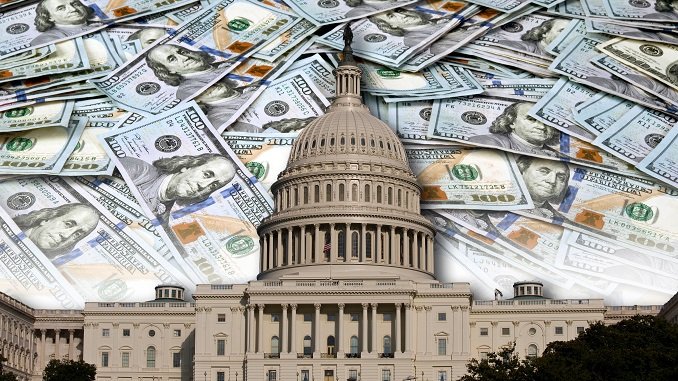department of education
CARRIE SHEFFIELD: Trump and GOP Face Imperative to Curb Excessive Spending

By Carrie Sheffield |
The United States is grappling with a staggering $36 trillion in federal debt, sparking renewed discussions about fiscal reform. With President-elect Donald Trump set to assume office on January 20, a proactive approach to financial recovery is anticipated. Achieving meaningful change will require solid Republican unity.
Representative James Comer of Kentucky, who chairs the House Oversight Committee, recently spoke with the Daily Caller News Foundation. He introduced a new Subcommittee on Delivering on Government Efficiency (DOGE), headed by Representative Marjorie Taylor Greene from Georgia. Comer expressed confidence in the subcommittee’s ability to uncover waste and fraud within government operations.
“I don’t think there’s going to be any shortage of waste, fraud, and abuse for that subcommittee to investigate,” Comer asserted. He emphasized the importance of rooting out Medicare fraud and reforming aspects of the pharmaceutical industry to achieve healthcare savings.
Comer urged a more aggressive focus from U.S. attorneys on Medicare and Medicaid fraud, which he believes has not received the attention it deserves across many jurisdictions. He plans for advances to be made through a legislative reconciliation process that bypasses the need for a 60-vote Senate majority, noting that Democrats traditionally resist spending cuts.
Comer’s DOGE initiative mirrors Trump’s own Department of Government Efficiency, which aims to streamline government functions and cut unnecessary federal programs. This initiative is driven by prominent figures like Elon Musk and Vivek Ramaswamy, who have set an ambitious deadline for implementation by July 4, 2026, coinciding with the 150th anniversary of American independence.
Ramaswamy characterized the DOGE as “the greatest effort to downsize government in our lifetime,” promising significant agency eliminations. Comer highlighted the redundancy of the Department of Education, advocating for direct federal funding to be sent to states instead of through a federal intermediary.
Despite the potential for bipartisan cooperation, Comer expressed skepticism about engaging Democrats. “I have yet to meet a Democrat in Congress that’s concerned about $36 trillion debt,” he said, raising concerns that fiscal responsibility is not a priority for many within the opposing party.
Urgent action is warranted; the debt-to-GDP ratio has surged dramatically. In 1980, it was less than 31 percent; by 2000, it reached nearly 57 percent, and today it stands around 120 percent, according to the Federal Reserve Bank of St. Louis. This trend is unsustainable and threatens America’s financial future.
Republicans see a critical opening to influence America’s fiscal trajectory positively. Comer noted that past successes in primaries against less committed Republicans could bolster Trump’s cost-saving agenda. “We can get, I think, just about everything they want, passed out of the House,” he stated, signaling strong alignment among GOP members.
The increasing tide of government spending, exacerbated by COVID-19 stimulus measures, has heightened concerns about financial solvency. There is a public demand for fiscal restraint that could also contribute to lowering inflation rates—an expectation that Trump and congressional Republicans are eager to fulfill.
This article was originally published by the Daily Caller News Foundation.
Carrie Sheffield is a contributor at The Daily Caller News Foundation and serves as a senior policy analyst at Independent Women’s Voice.

















